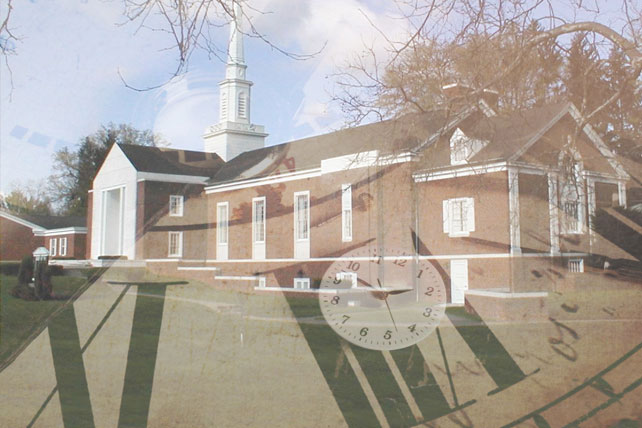I recently worked with a church that had faithfully carried out their mission for 40 years. Then a slow decline took hold. Today, they are nothing like they once were. Recognizing that fact, they brought in an expert to tell them what to do. The expert told them to jettison the past, loose the dead weight and embrace new things research showed were the trends in growing churches. They brought in a new pastor. He discounted their identity from the past and tried to create a new and exciting identity for the future. After some initial excitement (and anger), the “new thing” began to stall out. Interestingly enough, when I read the recommendations of the “expert,” I saw many great ideas that I have seen work in many places. So why didn’t they work? What was holding them back?
Change happens—you can fight change but you can’t stop it. Without change, organizations die. Many churches in the U.S. face this challenge: Culture has changed, yet churches have not embraced change along the way. Many churches continue to simply try to do what they did in the past in the same way they did it—only “better.” Doing the same thing “better” is not change.
One of the great and early heresies in the church was Marcionism. Marcion held that a new thing was being done in Jesus Christ (true). He also taught that the past—and the “Hebrew God”—were bad (not true). When Marcion looked back, all he could see was a God of wrath and judgment. When he looked at Jesus, he saw mercy and grace. Marcion sought to move forward in Jesus by demonizing the past.
Of course the church understood that God’s values and promises of mercy and grace have always been the same and will always be the same. There is abundant mercy and grace in the Hebrew scriptures. Instead of severing the connection with the past, we need to begin where Jesus began. In Matthew 5:17, Jesus said, “Do not think that I have come to abolish the law or the prophets; I have come not to abolish but to fulfill.” Things were changing drastically in and through Jesus Christ. God’s promises of mercy and grace were not new. What was new was the way God was going to make manifest that mercy and grace. Jesus stood on the foundations of the past mercy and grace that are the very identity of God. Jesus, being a faithful Jew, understood the core identity of God proclaimed to Moses in Exodus 34:6: “a God merciful and gracious, slow to anger, and abounding in steadfast love and faithfulness.” Jesus also knew the core identity of the people of God: “‘You shall love the Lord your God with all your heart, and with all your soul, and with all your mind.’ This is the greatest and first commandment. And a second is like it: ‘You shall love your neighbor as yourself.’ On these two commandments hang all the law and the prophets.” Jesus did a very new thing by becoming human, suffering and dying on the cross to bring us mercy and grace. But when Jesus did the new thing, he stood on the foundational values and identity of God that had always been present.
So, what does the past have to do with changing for the present and future? Change in the local congregation needs to look backward before venturing forward, but living in the past brings failure. Here are the two keys to faithful change:












